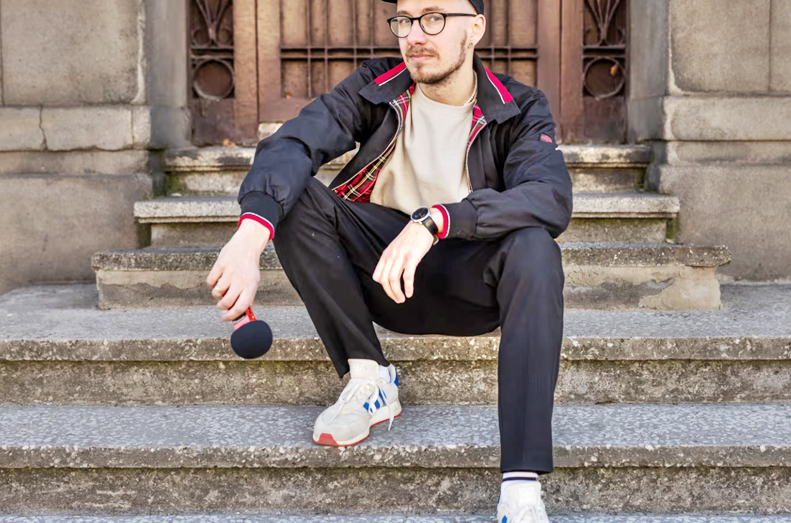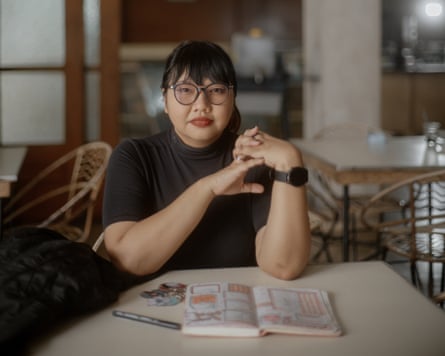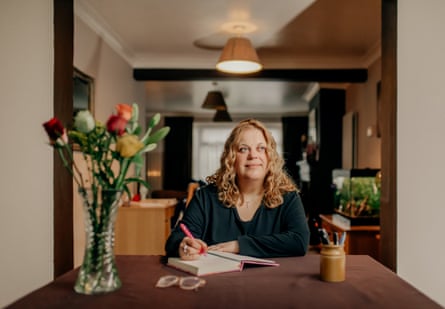‘One day I overheard my boss saying: just put it in ChatGPT’: the workers who lost their jobs to AI

By Guardian-Charis McGowan-Sat 31 May 2025 11.45 BST
From a radio host replaced by avatars to a comic artist whose drawings have been copied by Midjourney, how does it feel to be replaced by a bot?
‘They called it an experiment aimed at younger audiences’
By Mateusz Demski, 31, journalist, Kraków, Poland

I’ve been a freelance journalist for 10 years, usually writing for magazines and websites about cinema. I presented a morning show on Radio Kraków twice a week for about two years. It was only one part of my work, but I really enjoyed it. It was about culture and cinema, and featured a range of people, from artists to activists. I remember interviewing Ukrainians about the Russian invasion for the first programme I presented, back in 2022.
I was let go in August 2024, alongside a dozen co-workers who were also part-time. We were told the radio station was having financial problems. I was relatively OK with it, as I had other income streams. But a few months later I heard that Radio Kraków was launching programmes hosted by three AI characters. Each had AI-generated photographs, a biography and a specific personality. They called it an “experiment” aimed at younger audiences.
One of the first shows they did was a live “interview” with Polish poet Wisława Szymborska, winner of the 1996 Nobel prize for literature, who had died 12 years earlier. What are the ethics of using the likeness of a dead person? Szymborska is a symbol of Polish intellectual culture, so it caused outrage. I couldn’t understand it: radio is created by people for other people. We cannot replace our experiences, emotions or voices with avatars.
One of my colleagues who was laid off is queer. One of the new AI avatars was called Alex, a non-binary student and a “specialist” in queer subjects. In Poland, we are still fighting for queer rights, and as journalists it’s incumbent on us to have real representation when reporting on this. For my colleague and the LGBTQ+ community, it was shocking and damaging to hear their lived experience and knowledge being imitated by AI.
Some of us who had been laid off started a petition against the station, calling for regulation and to get the AI shows taken off air. We got tens of thousands of people to sign – actors, journalists, artists, but also listeners. Hundreds of young people didn’t want to listen to an AI show.
The station has since scrapped the avatars, largely because of the success of our campaign. It’s now student-run. The station claim this is about offering mentorship, but it’s also a cheaper alternative to hiring qualified journalists. I guess it’s better than AI, though.
There are still no clear regulations covering its use in Poland. I’m not campaigning for regulation because I lost my job to AI: I’m campaigning because I’m worried about the ethics of all of this; about misinformation and deceiving listeners.I’m a realist – I’m not completely against AI. I think it can be used responsibly to do the boring bits of our job. But we can’t substitute complex thinking with machines. AI can’t replace our curiosity, creativity or emotional intelligence.
‘Even those who’ve kept their jobs have had their wages reduced’
Lina Meilina, 30, illustrator, Bandung, Indonesia

I’ve been drawing and painting since I was a kid. Even in kindergarten, I was doodling. By elementary school I was drawing comics and my teachers knew I had potential. I have strict, traditional parents who told me art wouldn’t make me any money, but I wanted to follow my dreams. Now I make anime-style illustrations, and most of my income comes from commissions: I draw bespoke characters for clients, and also create my own.
Even before AI tools arrived, it wasn’t easy. Indonesia doesn’t take artists seriously and copyright laws are weak. I’ve seen people steal my work and put it on merch to sell on retail websites such as AliExpress. I have to get them taken down myself, screenshotting pages one by one to report them to the site’s admin. Now, AI makes it harder to prove ownership, because it can take your art and make slight changes, so it’s not a direct copy.
I first learned about generative AI a few years ago, watching a YouTuber introduce viewers to the software Midjourney, which generates images based on prompts. He asked the program to produce an image in the style of comic book artist Alex Ross. The finished work was good, with Ross’s distinctive hyper-realistic style and colour palette. I remember thinking, “Oh shit, this is going to be a disaster.”
Since last year, when AI really took off, my workload has plummeted. I used to get up to 15 commissions a month; now I get around five. People can take your art and feed it into an AI program to create work. A follower of mine recently used AI to portray my characters doing something inappropriate. I tried to report it, but the platform said it didn’t violate its copyright policy.
One of the main platforms freelance artists use to get work recently launched a campaign called “Nobody cares if you use AI”, encouraging clients and artists to embrace AI tools. Well, I care, as do a lot of my colleagues.
Even the Indonesian government is using AI art: they recently released a video promoting a scheme that provides free lunches for students. It’s a great initiative, but it breaks my heart that they used AI instead of commissioning a talented Indonesian artist.
I used to work in a small studio as a storyboard artist for TV commercials. Since AI appeared, I’ve seen colleagues lose jobs because companies are using Midjourney. Even those who’ve kept their jobs have had their wages reduced – and pay in south-east Asia is already low.
Maybe my mum was right that I shouldn’t be an artist. I’ve had to look for other sources of income – at the moment, I make cosplay props on commission. I love illustrating, but if I keep losing clients because of AI, I’ll probably go into prop-making full-time.
‘I feel devastated for the younger generation – it’s taking all the creative jobs’
Annabel Beales, 49, copywriter, Southampton, UK

I landed my dream job in 2023, writing content for a garden centre. I mostly did search engine optimisation, and wrote gardening tips for their magazine and blog. My colleagues were friendly and the hours were flexible.
I’ve always loved reading and writing. I was brought up on a farm with no television, so I was always at the library, reading Judy Blume books. If I didn’t like the ending, I would rewrite it. But I never thought then that I could pursue writing as a career: where I’m from, it was hard to break into anything creative – people either worked as nurses or at the local car manufacturer. Even though I wanted to be a writer, my mum had always told me to have a back-up plan.
Copywriting didn’t come to me straight away, so I did secretarial work for years, and admin roles in the public sector. I’d heard of some friends who needed a copywriter for their businesses, and I was interested in writing professionally, so I enrolled on an online course. It cost a month’s wages and took eight months to complete, but I enjoyed the creativity.
I got the gardening centre job a few months later. I’d interview different experts to write blogs on topics such as growing potatoes or planting trees. I threw myself into it and passed my probation.
Around eight months in, I noticed I was getting less work. One day, I overheard my boss saying to a colleague, “Just put it in ChatGPT.” The marketing department started to use it more often to write their blogs, and they were just asking me to proofread. I remember walking around the company’s beautiful gardens with my manager and asking him if AI would replace me, and he stressed that my job was safe.

